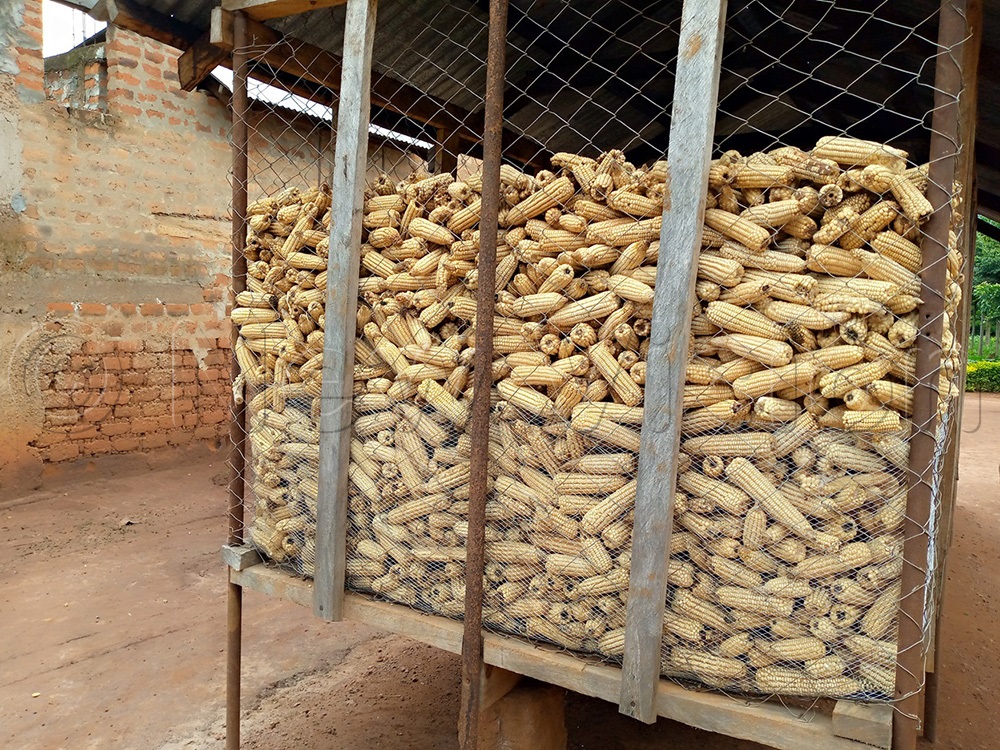Govt moves to eliminate aflatoxins from foodstuffs
Jun 09, 2022
Besides health, high Aflatoxin levels are a major barrier to the exportation of Uganda’s agricultural produce to the East African Region and internationally.

Govt moves to eliminate aflatoxins from foodstuffs

Joseph Bahingwire
Journalist @New Vision
In a move to promote the consumption of safe food in the country, the government has embarked on a campaign to fight against the high Aflatoxin levels in foodstuffs.
According to Patricia Bageine Ejalu, the Deputy Executive Director in Charge of Standards at the Uganda National Bureau of Standards (UNBS) the campaign will be through the Ministry of Agriculture, Animal Industry and Fisheries (MAAIF) and UNBS in collaboration with the Grain Council Uganda (TGCU), Uganda National Farmer’s Federation (UNFFE), Food Rights Alliance (FRA), PELUM and ESAFF.
Speaking to New Vision in an interview, she said the efforts which will be supported by OXFAM, are against the backdrop of World Food Safety Day 2022 (June 7) which was celebrated under the theme: Safer food, better health.
“Aflatoxins are poisonous substances produced by moulds when they infest produce that is not well-dried. High levels of Aflatoxins contaminate food crops like cereals, legumes, oil crops and others, posing a serious health threat to humans and livestock,” she said.
She added that research has shown that consuming foods with high aflatoxins levels increases the risk of contracting liver cancer and other related diseases, which could lead to death.
Besides health, high Aflatoxin levels are a major barrier to the exportation of Uganda’s agricultural produce to the East African Region and internationally.
Internationally, Aflatoxins pose a significant economic burden, which according to the World Health Organization (WHO) 2018 report, causes an estimated 25% or more of the world’s food crop loss, consequently contributing to hunger.
Ejalu thus said the campaign against high levels of Aflatoxins is aimed at creating awareness about this poison and training all stakeholders in the value chains, right from the farm to the final consumer, on how to handle food to avoid Aflatoxin contamination.
This, therefore, calls for a joint effort from every stakeholder: farmers, transporters, traders, manufacturers, Civil Society Organizations, the private sector, regulators and the consumers to join the fight against high Aflatoxin levels in food.
“The efforts also contribute to the attainment of the National Development Plan III goal to ‘Increase household incomes and improved quality of life’ and Sustainable Development Goals: SDG 1 on No Poverty, SDG 2 on attaining Zero Hunger, and SDG 3 on Good Health and Wellbeing,” Ejalu added.
She thus called upon farmers to adopt good agricultural practices that ensure the right moisture content in food to eliminate high Aflatoxin levels, ensure that food crops are harvested when dry, avoid storing food before thoroughly drying it, dry the food crops properly on tarpaulins, canvas, mats or in cribs or dry crops using improved technologies that reduce drying time.
“Farmers should also properly cover harvested food during rainy seasons to keep it away from moisture, avoid storing harvested food on the floor because they get damp and the moisture provides a conducive environment for moulds, store food on pallets, check crop dryness using the salt method or moisture meter and regularly clean, disinfect and repair the store,” she added.
She also advised traders and manufacturers to only purchase good quality produce from farmers and always offer better prices for well-maintained produce since this decreases the cost of quality maintenance for the trader and acquire a moisture meter to test the moisture content of the produce to ensure it is not more than the recommended 13%, and an Aflatoxin testing kit to ensure that the Aflatoxin levels do not exceed 10ppb, before in putting it in the production chain.
“I also call upon the transporters to protect produce from rain and dust by ensuring that it is correctly packaged in clean bags and covered and ensure that it is dried to required moisture content before transportation,” she said adding that they should also use clean vehicles in good mechanical condition to avoid contamination and offload produce as soon as possible, upon delivery.
To the consumers, Ejalu advised them to only buy and consume foods certified by UNBS because you can guarantee safety of such products.
“Always report any distributor or dealer of expired or sub-standard products to the nearest police station and contact UNBS for redress on toll-free number; 0800133133,” she appealed.
In the same efforts, the Gamma Irradiation Facility will be constructed at Entebbe to help destroy all the microorganisms including aflatoxins in agricultural products before they are exported, hence reducing cases of Ugandan agricultural products being rejected on foreign markets.
The project is being undertaken by the government through the Uganda Development Cooperation.
Patrick Birungi, the executive director of Uganda Development Corporation said Ugandan agricultural products including flowers, fruits, and bananas among others, have always been refused on the international market due to poor quality hence this project whose feasibility study has been completed will solve the problem.
“The system uses radiation to kill all microorganisms in a product to make it safer for consumption. It has been adopted in many countries and we hope it will streamline our agricultural trade” he said.

No Comment